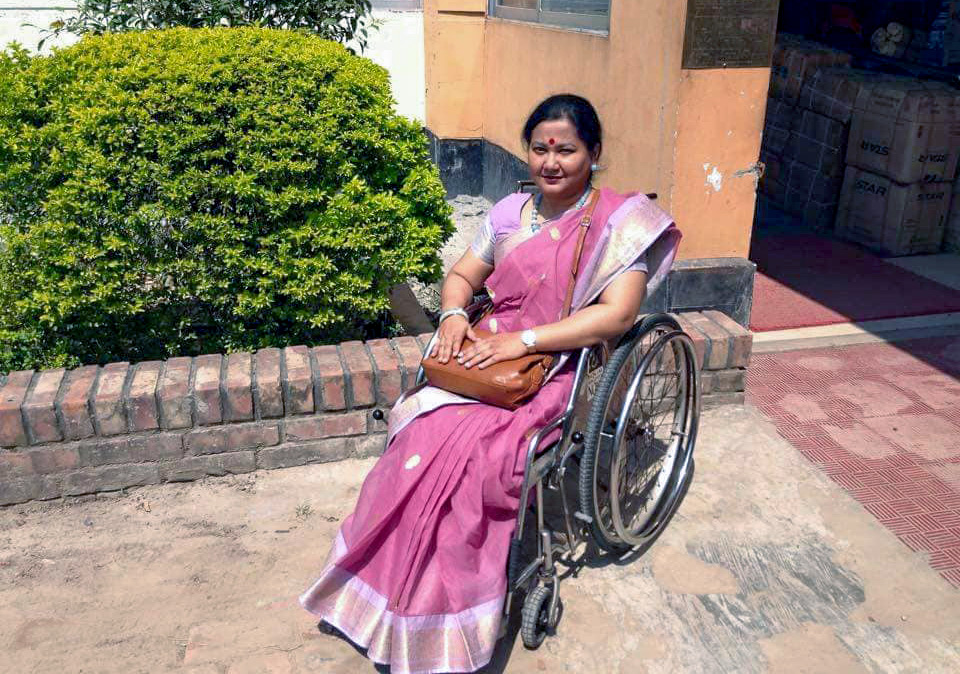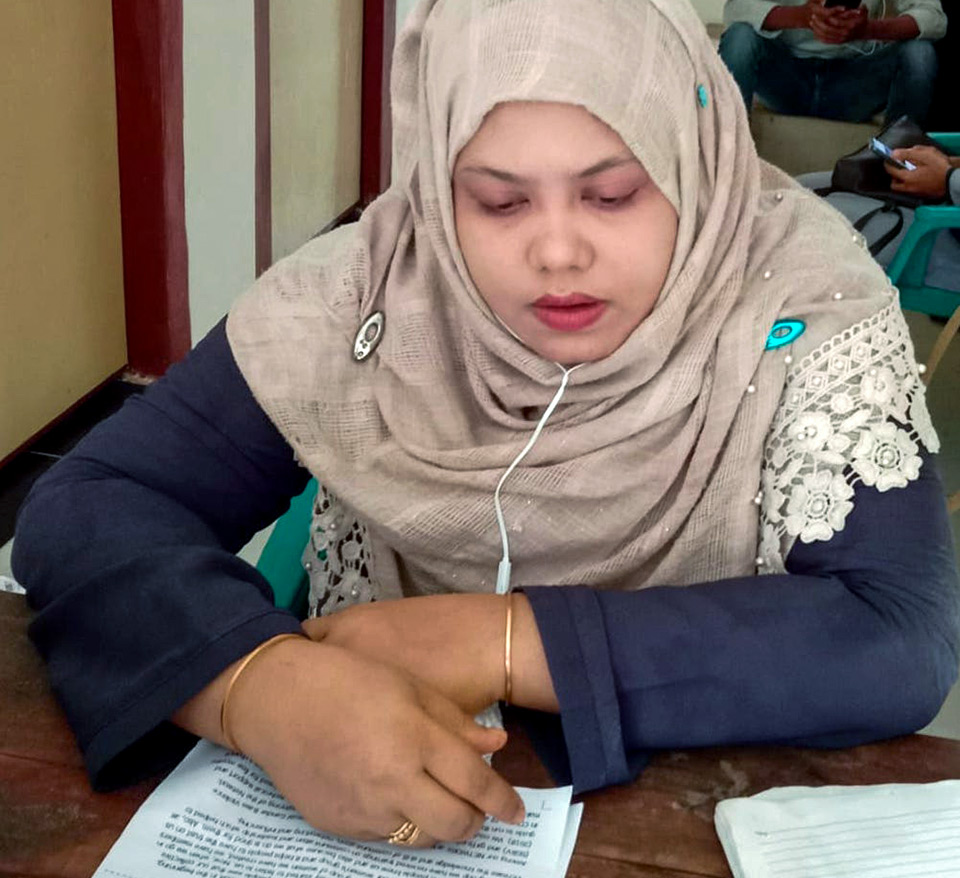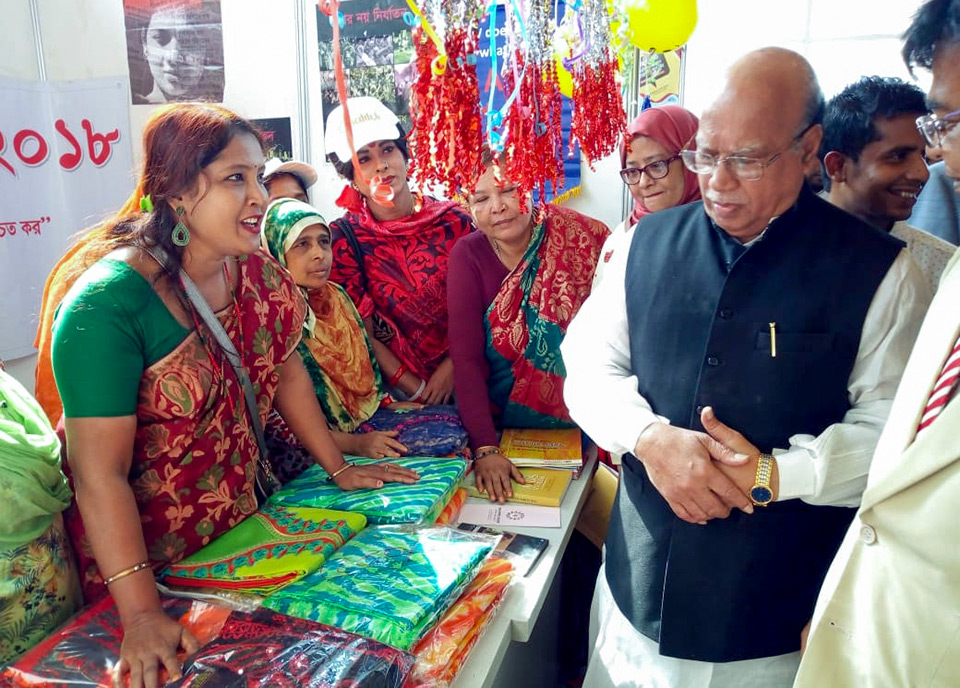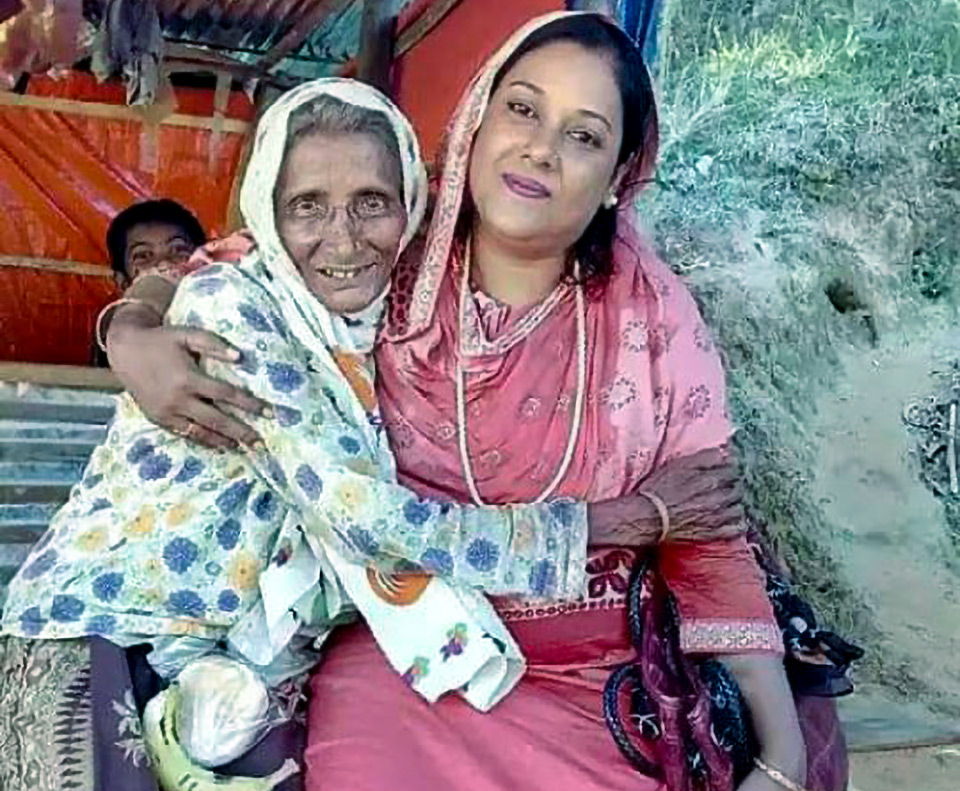Support us in responding to humanitarian crises, female activists in Bangladesh say
Date:
Author: Joelle Charbonneau
Cox’s Bazar, Bangladesh — Female leaders have called for greater efforts to promote women on the front lines in responding to humanitarian crises in Bangladesh.
A diverse group of women front line-humanitarian workers and leaders from Rohingya and host communities spoke at an online forum on Feminism: Diverse Women as First Responders. The forum was hosted by the ISCG Gender Hub on 19 August to mark World Humanitarian Day and the third anniversary of the influx of Rohingya refugees from Myanmar into Cox’s Bazar in south-eastern Bangladesh. The Gender Hub, formed by UN Women and hosted by the ISCG Secretariat, works to strengthen accountability of all humanitarian actors on gender equality and empowerment of Rohingya refugee and host community women and girls.
In Bangladesh, women traditionally have been viewed as vulnerable and passive recipients of aid. The forum, however, featured stories of resilient women responding to a wide range of crises -- including displacement and the coronavirus pandemic – by providing a range of critical life-saving services, social support and channels for building peace and bettering lives in their communities. As the humanitarian community commemorates three years and looks forward, all actors must fully engage with and integrate women leaders and women’s organizations of diverse groups into the response or a durable solution will not be reached.

Anika Rahman, Associate Director of the Center for Disability in Development, told the forum that even though people with disabilities experience great hardships, they never shy away from opportunities to help out during crises by volunteering, advocating and joining youth campaigns. She urged people to “engage organizations of persons with disabilities not just to collect their feedback, but to play an active role in all the phases of humanitarian actions”.

Chekufa Ra, a Rohingya refugee, activist and community leader, spoke of her pride in her work, but also of the need for financial support. “Our women’s network has the knowledge and skills to manage activities within the community … We can proudly say that we have the community's support,” she said. “However, while we receive technical and material support … There is no financial support for our operation.”

Aleya Akter Lily, the general secretary of the Sex Workers Network, which aims to unite sex workers’ organizations across Bangladesh to protect their rights and discourage discrimination, noted the stigma and challenges her organization faces but said she wanted to increase activism and advocacy. She called for adapting rules and policies “so that the sex workers’ organizations can be recognized as diverse women’s activist organizations, not as beneficiaries”.

Neelima Akter Chowdhury, a Cox’s Bazaar resident who has participated in numerous humanitarian and development projects in the region and founded the non-governmental organization AGRAJATTRA in 1998, highlighted the importance of women’s leadership in making communities more resilient to emergencies. “Prioritize diverse women’s organizations and groups in the frameworks of national and international donor organizations … Provide us real opportunities, not just promising words,” she urged.
About 90 representatives of civil society groups, United Nations agencies, and humanitarian and development groups attended the forum.